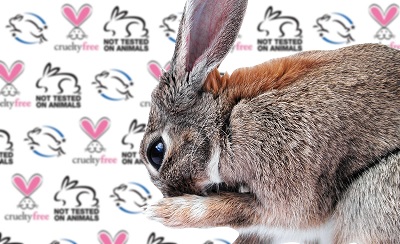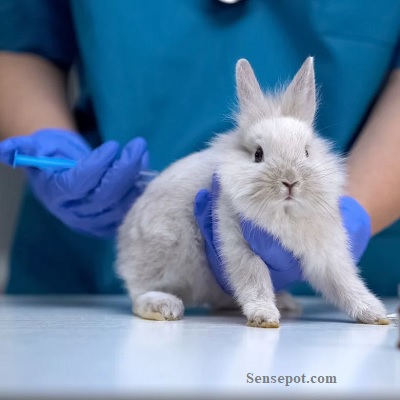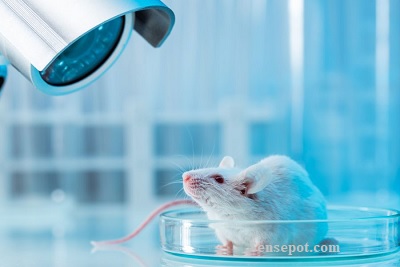Have you heard of cruelty-free cosmetics? Does it still have such a cute rabbit on it? If not, you need to fix it immediately! After all, the trend for it continues to steadily gain popularity, and it is really worth supporting!
Cruelty-free is ethical cosmetics that are not tested on animals at any stage of their production. So, in order for you to be happy with a jar of a new cream, not a single fluffy will suffer.

What’s the Difference between Cruelty-free cosmetics and vegan cosmetics?
Cruelty-free, also known as ethical cosmetics, are products that are not tested on animals at any stage of production.
It’s easy to find out. The packaging will say “Not tasted for animals”, “Animal friendly”, or the PETA rabbit logo on the packaging. It means that thanks to the refusal of animal testing somewhere, the fluffy rabbit Ralph continues to happily chew on carrots.
Cruelty-free products may contain ingredients of animal origin, but obtaining them should not harm our little brethren. Most often these are waste products: honey, wax, snail mucin, silk, royal jelly, and more.
But vegan cosmetics are not tested and do not contain components of animal origin. Usually, it is marked on the package with a “V” (vegan ).
How are cosmetics tested on animals?
Persons with weak nerves should skip this section. Because animal testing is cruel. No wonder more and more countries restrict it by law (we’ll talk about this a little further). Last year, a cartoon about Ralph the Rabbit was released, which scattered quite widely across the network. It showed the difficult everyday life of a “cosmetics tester”. I suggest you take a look.
Like this. Most likely, the cartoon shows the Draize test. The animal is immobilized, the test agent or component is applied to the eyes or skin, and they are washed off after a while. Next, observe the reaction: are there swelling, wounds, and other damage? I think you have already guessed that most animals after such a “work” are subject to euthanasia. And others are waiting for a cruel repetition of the procedure.
Agents that can get into the eyes when used are often tested on albino rabbits, which do not blink. A variety of aerosols – on beagles. Yes, these cute four-legged ones, like your girlfriend. Just imagine that instead of goodies and scratching behind the ear, they put a mask on him and force him to inhale concentrated vapors of varnish or deodorant in a closed space.
And all this with rather dubious reliability of the test. The reaction of an animal and a person is not identical, and it is unlikely that you will intentionally close yourself in a cramped room and begin to breathe in concentrated varnish.
Ethical Ways to Test Cosmetics
How to check the safety of cosmetics and be sure of their properties? There are several common methods. They are both more humane and more reliable.

- In vitro method: “in vitro”, on artificially grown cells.
- In vivo: on living human volunteers. It is used primarily before entering the market.
- Computer simulation method.
- On the skin grown artificially. A person gives a puncture of his skin (voluntarily, consent is signed). Epithelial cells are grown from it and the product is tested on them. In this way, you can check the reaction of all skin types.
Who enforces the standards?
Avoiding animal testing is becoming an important factor in consumer choice of cosmetics. Who controls that manufacturer honestly follows the rules? There are special organizations for this:
- PETA is an American organization that annually updates the black-and-white lists of brands. It is logical that ethically-oriented companies fall into the white and those who are still indifferent to the suffering of pussies who are being experimented on fall into the black.
- Cruelty-Free International is a British organization merged with BUAV. It also controls whether the manufacturer orders product testing from other companies. Whatever it was, they put on “animal friend” gloves, and transferred the dirty work to the contractor.
- Not Animal Testing – Australians also actively control global manufacturers.
- Cruelty-Free Kitty – indicates, among other things, which brands are vegan.
- Ethical Elephant – also makes its own “white list”.
The links allow you to go and check out your favorite brands. It would help if you looked closely at which group of companies the trademark belongs to. If the “parent” company is on the PETA blacklist, then the subsidiaries are likely to be.
Interesting on the topic B5 Panthenol Cosmetics- Benefits And Uses For Skin And Hair
Animal Testing in the Cosmetics Industry
- In January 2021, Ukraine adopted a resolution banning animal testing. Should come into effect in 2023.
- Since 2013, the EU has banned not only animal testing but also the sale of cosmetics that have passed in other countries. From the sad: there are cunning people who create cruelty-free products, especially for the EU market, while in other countries they continue to hurt furries.
- Since 2015, South Korea has begun moving towards alternative methods for checking the safety of cosmetics.
- In the US, the stringency of animal-friendly controls varies by state.
- China is one of the toughest markets for pussies. While the production of products tested by alternative methods is still allowed in some regions, the sale in offline stores usually requires animal testing by law. It is not surprising that PETA often blacklists companies that are actively present in the Chinese beauty market.

I hope with this article I managed to draw your attention to the trend for ethical cosmetics. Agree that the questionable reliability of animal tests cannot outweigh the damage done to cute furries.
FAQs
Are cruelty-free cosmetics more expensive than regular ones?
No, cruelty-free cosmetics can be found at different prices, just like regular products. Some are affordable, while others may be more expensive, depending on the brand and specific product.
How can I know if a company is truly cruelty-free?
Look for labels or symbols from trusted organizations like the Leaping Bunny or PETA. You can also check the company’s website or contact them directly to ask about their cruelty-free practices.
Do all cruelty-free products have a cruelty-free label on them?
Not all cruelty-free products have a label. Some companies choose not to display a specific logo but still follow cruelty-free practices. It’s a good idea to research or ask the company for more information.
Can I find cruelty-free cosmetics in stores, or do I have to buy them online?
You can find cruelty-free cosmetics in various stores, including supermarkets, beauty shops, and online retailers. Many brands have both physical stores and online platforms for purchasing their products.
Are cruelty-free products only for makeup, or are there other options?
Cruelty-free products go beyond makeup. You can find cruelty-free skincare, haircare, and body care products too. It’s a whole range of beauty products to choose from.
Can everyone use cruelty-free cosmetics, no matter their skin type?
Yes, cruelty-free cosmetics are suitable for all skin types. Whether you have sensitive, dry, oily, or combination skin, you can find cruelty-free options that work for you.
Can I trust international brands that claim to be cruelty-free?
International brands can be cruelty-free, but it’s important to verify their claims. Look for certifications or research their reputation to ensure they follow cruelty-free practices.
Are cruelty-free cosmetics better for the environment?
Many cruelty-free brands focus on sustainability. They use eco-friendly packaging and promote practices that are better for the environment. By choosing cruelty-free, you can contribute to a greener beauty industry.
Are animal testing regulations the same in all countries?
Animal testing regulations vary by country. Some have banned or limited animal testing for cosmetics, while others still allow it. It’s important to know the regulations in your country and support brands that advocate against animal testing.
Can I switch to cruelty-free products gradually?
Yes, you can transition to cruelty-free products at your own pace. You can start by replacing one product at a time or focus on specific categories like skincare or makeup. Every small step makes a difference.


